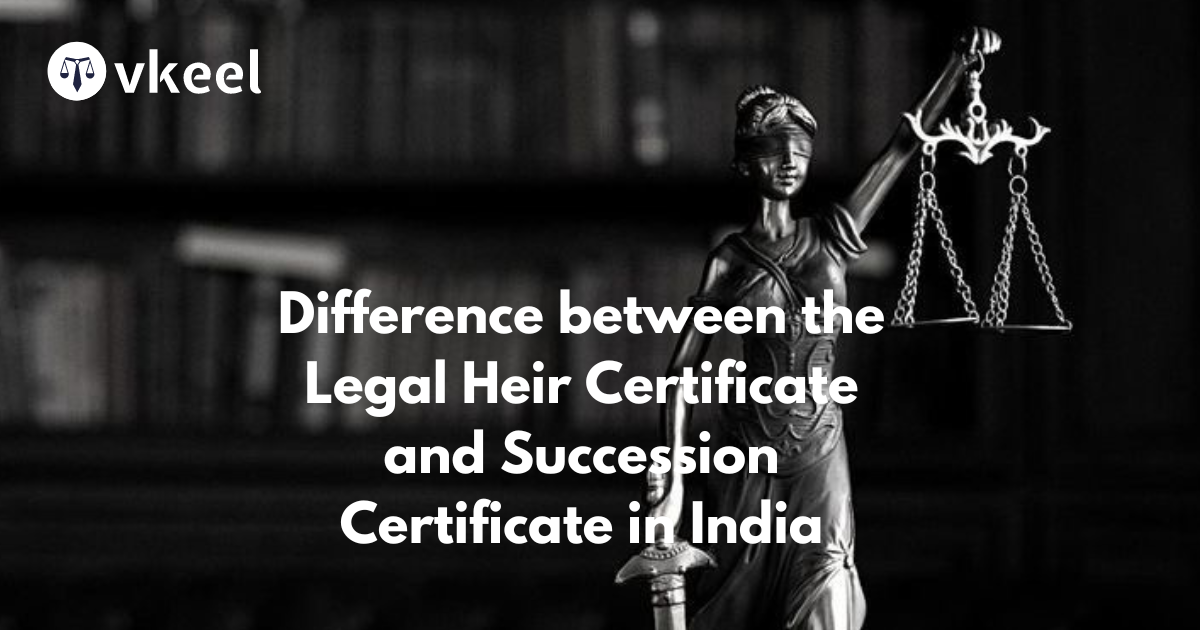The Heirship Certificate for Transfer of Title: Necessary or Not?
By Himanshu Kumar
Table of Contents
Introduction
The transfer of title, especially in the context of property and substantial financial assets, is a critical legal process that ensures rightful ownership and prevents disputes. A common question that arises in this context is whether a Legal Heir Certificate or a Succession Certificate is necessary for the transfer of title. This article aims to provide a comprehensive understanding of heirship certificates in India, their necessity for title transfers, relevant case laws, and legislative amendments.
Understanding Heirship Certificates
Legal Heir Certificate
A Legal Heir Certificate is issued by local administrative authorities such as the Taluk Office or Tehsildar. It is used to establish the relationship of the heirs to the deceased for administrative purposes. It is primarily used for transferring movable assets like bank accounts, family pensions, insurance claims, and utility services.
Succession Certificate
A Succession Certificate is issued by a civil court and is necessary for claiming debts and securities of the deceased. This certificate is legally recognized for handling significant financial transactions and provides indemnity to the parties paying debts to the certificate holder.
Necessity of Heirship Certificates for Transfer of Title
Legal Heir Certificate and Title Transfer
For the transfer of title, particularly in immovable property (like land or buildings), the Legal Heir Certificate alone is generally not sufficient. This certificate serves administrative purposes and is used for smaller financial transactions and claims. It identifies the heirs but does not provide the legal authority needed for transferring property titles.
Succession Certificate and Title Transfer
The Succession Certificate, on the other hand, has a broader legal application. For the transfer of movable assets, such as securities, debts, and bank accounts, the Succession Certificate is essential. However, when it comes to immovable property, the legal requirement often extends beyond this certificate to include other documents such as a Probate (if a will exists) or Letters of Administration.
Case Laws on Heirship Certificates and Title Transfer
Important Case Laws
Jayasri Sahu vs. Ashim Kumar Kar (2007)
- The Supreme Court held that a Succession Certificate is essential for transferring the deceased’s securities and debts, emphasizing its legal necessity over the Legal Heir Certificate in financial contexts.
M. Thanikachalam vs. V. Kalyani (2009)
- The Madras High Court clarified that while a Legal Heir Certificate can be sufficient for pension and minor claims, significant financial transactions and property transfers require more formal documentation such as a Succession Certificate or Probate.
Chellammal vs. Nallammal (2014)
- The Madras High Court reiterated that the Legal Heir Certificate cannot substitute for a Succession Certificate in the distribution of substantial financial assets, including the transfer of significant property titles.
Judicial Interpretations
Courts in India have consistently ruled that while a Legal Heir Certificate identifies heirs, it does not confer the legal authority required for transferring property titles. For immovable properties, a more robust legal procedure is necessary, often involving the Succession Certificate, Probate, or Letters of Administration to ensure that the transfer of title is legally binding and recognized by all relevant authorities.
Legislative Amendments and Implications
Indian Succession Act, 1925
The Indian Succession Act, 1925 governs the issuance of Succession Certificates. Amendments to this act have streamlined the process, aiming to reduce the burden on courts and expedite the issuance of certificates. However, the Act does not directly address the transfer of immovable property titles, which often requires additional legal procedures.
The Hindu Succession (Amendment) Act, 2005
The Hindu Succession (Amendment) Act, 2005 primarily focused on gender equality in inheritance rights, ensuring daughters have equal rights to inherit property. This amendment has implications for the issuance of heirship certificates, as it recognizes daughters as equal heirs, necessitating their inclusion in the legal processes for title transfers.
Digital India Initiative
Recent administrative reforms under the Digital India Initiative have aimed at digitizing the process for obtaining Legal Heir Certificates, enhancing transparency and efficiency. However, the transfer of title for immovable property still requires more comprehensive documentation and legal validation, which cannot be entirely addressed by a Legal Heir Certificate alone.
Practical Considerations in Title Transfers
Documentation Requirements
For the transfer of title in immovable property, the following documents are generally required:
- Succession Certificate: For movable assets and securities.
- Probate: If the deceased left a will.
- Letters of Administration: If there is no will.
- Legal Heir Certificate: For initial identification of heirs, though not sufficient for the final transfer of property title.
- Sale Deed or Partition Deed: To establish clear ownership.
Process and Legal Procedures
The process for transferring title typically involves:
- Application Submission: Filing the necessary applications with relevant authorities or courts.
- Verification: Verification of documents and claims by authorities.
- Legal Validation: Court hearings and legal procedures to validate the claims and issue the necessary certificates.
- Title Transfer: Execution of the transfer deed and updating land records.
Conclusion
In summary, while a Legal Heir Certificate is a useful administrative tool for identifying heirs and managing smaller financial transactions, it is not sufficient for the transfer of title in immovable property. The Succession Certificate, Probate, or Letters of Administration are often necessary to ensure that the transfer is legally binding and recognized. Courts in India have consistently emphasized the need for these robust legal documents to prevent disputes and ensure the rightful transfer of property titles.
Legislative amendments and judicial interpretations underscore the importance of following proper legal procedures for title transfers. Understanding these requirements and obtaining the appropriate certificates ensures that heirs can rightfully and legally inherit the deceased’s assets, maintaining legal clarity and protecting their interests.
Disclaimer:
The information provided in the article is for general informational purposes only, and is not intended to constitute legal advice or to be relied upon as a substitute for legal advice. Furthermore, any information contained in the article is not guaranteed to be current, complete or accurate. If you require legal advice or representation, you should contact an attorney or law firm directly. We are not responsible for any damages resulting from any reliance on the content of this website.








